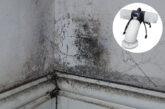
As the UK eases its way out of COVID-19 restrictions, Bureau Veritas is reminding plant managers and duty holders responsible for explosive (Ex) equipment to ensure they are taking a proactive approach when it comes to essential maintenance works.
With coronavirus putting pressure on available resource for activities such as Ex inspections (also known as ‘ATEX inspections’) over the last 18 months, it is imperative that the appointed responsible persons, or Technical Person with Executive Function (TPEF), responsible for hazardous areas is clear on the maintenance requirements in line with the Dangerous Substances and Explosive Atmospheres Regulations (DSEAR).
According to Electrical Installations Inspection and Maintenance (specifically standard BS EN 60079-17), Ex equipment must be inspected at one of three grades at a minimum of every three years to ensure it remains safe and compliant in line with the relevant standards, local regulations and the manufacturer instructions. With many operations taking a ‘visual’ or ‘close’ approach to ensuring the safety of their Ex equipment, Bureau Veritas is encouraging those working in hazardous environment to take a proactive and ‘Planned Preventative Maintenance’ (PPM) approach to ensure compliance and to reduce the likelihood of an ignition source.
Michael Kenyon, Head of Electrical Technical Development at Bureau Veritas, said: “As we emerge from lockdown and we begin to revisit processes and procedures that may have been put on hold in the last 18 months, it’s important that those responsible for Ex equipment are aware of the ATEX requirements and are planning accordingly for their maintenance programmes.
“By the nature of the industries that operate with hazardous areas, all too often we see visual or close inspections observed, with no consideration towards a more detailed inspection. This can sometimes be the case for long periods of time, or even during the entire lifecycle of the equipment. Where protection concepts have ignition capabilities, consideration to prioritising these types of inspections is recommended, and further demonstrates the effort of compliance.
“Having a PPM strategy can ensure that inspections are scheduled ahead of time and on a regular basis; particularly important for plants that require 24/7 functionality and operate with aging assets. It also means budgets can be better managed should equipment require further maintenance works – far preferable than operating on a reactive management plan.”
In the UK, statutory regulations – including DSEAR and Provision and Use of Work Equipment Regulations (PUWER) – place responsibilities on Duty Holders to ensure equipment is maintained adequately for businesses that process or storage flammable gases and vapours and explosive materials such as fine dusts.
Michael continued, “It is essential for all operations that include hazardous areas to have in place a suitable inspection strategy. We often see businesses carry out an important initial inspection and, further down the line, they become more infrequent – ultimately becoming an expensive, and dangerous, problem.
“Complying with regulations can be a minefield, and it can be a complex matter. As such we often see the TPEF turning to Bureau Veritas to support in providing essential ATEX guidance and management – whether that is to provide independent assurance that ATEX and DSEAR requirements are met, to carry out risk assessment, gap analysis or even specialist DSEAR training.”
Bureau Veritas has produced a technical guide to support Duty Holders in understanding how to develop an effective strategy to reduce the risk and achieve compliance when working in potentially explosive atmospheres. Download the free guide here.
To find out more about Bureau Veritas’ services or to discuss individual requirements with a member of the team, call 0345 600 1828 or visit the website.








